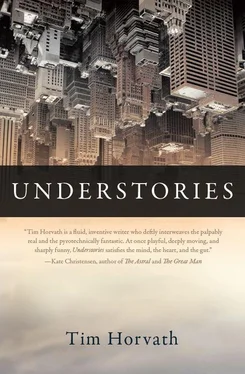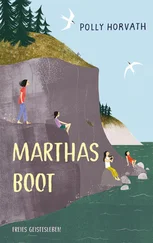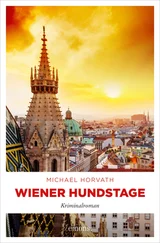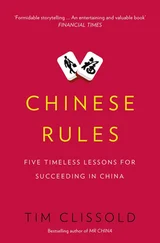“After she finally gets her grade in the mail — she did just fine — she musters up the courage to call him and ask him out. He is surprisingly appreciative and charmingly awkward all at once, and says it would be great to go out for dinner sometime. He tells her that her paper on Nietzsche on Plato was great, and that he was just surprised that she made no mention of Plato’s Allegory of the Cave — apologizes that they never had time for it on the syllabus, but surely she’s read it. She hasn’t? Oh, he tells her, oh, she must.
“She goes to the library immediately, and locates the Platonic dialogues. There’s nothing there that even looks cave-related, just a bunch of Greek names: Meno, Crito, no Cavo. Disheartened, she heads for the computer and looks up caves — maybe it’s nestled next to other cave books, maybe there’s an Anthology of Cave Literature ; she’ll try allegory last. She goes to the cave shelf — the 551s — and there, lo and behold, is something called Spelos: An Ode to Caves. The book seems to be beckoning to her — it all but has Plato’s autograph on it.
“She reads a hundred and thirty-seven pages in one fell swoop. There are references throughout the volume to Plato’s myth, but they’re oblique, scattered like clues. Over dinner, she says something about bats and the sizes of their heads relative to their bodies — he hears ‘hats,’ though, and finds the comment crass and trivial. She senses his boredom and the disparity of their intellects.
“After he drops her off, she takes the book, which was in her purse, and flings it off a bridge, where it flips over three times and hurtles into the back of a flatbed filled with gravel and dust. It rains a bit; the book is partly sheltered. The next morning, the driver picks it up and brings it back to the library. It’s the last day of the library book sale, and he gets three children’s books about construction and trucks dirt cheap, and takes them home to his kids and is proud because it is his profession and they will be readers.
“But he’s taken it to the wrong library — the name got slightly obscured by the rain, and he took it to the library one town over. As they attempt to check it in, of course, they recognize that. And they do what they always do in these cases.
“They send it to the Greenvale in the next state over, because there are two Greenvales within thirty miles of each other and this happens all the time.
“Well, at this point the book is a little bit tattered, a little bit scruffy. When it arrives at the Greenvale, Indiana Public Library, they roll their eyes a bit, relabel it, figuring that at some fundamental level all the libraries of the world are united — head librarian there fancies herself a bit of a socialist, anyhow. So they treat it like a new book; it spends a week at the bindery.
“When it hits the shelves again, they put it on display as a new book — really an understandable error, because it is shimmering in its new packaging. It happens that a man who has recently been diagnosed with obsessive-compulsive disorder has recently had a major breakthrough after years of therapy and failed remedies. His therapist has recommended that rather than attempting to beat his obsessions by avoiding them, he needs to find an outward focus for his obsessive energy, an object worthy of affection. He cites Freud; the patient is game.
“He heads to the library immediately and hits the ‘New Nonfiction’ shelves, then plunges into the older books. He pulls down four or five, each of which seems to promise a lifetime, or at least many months, of promising obsessional material. He clutches a stack and heaves it on the circulation desk up front: a book on kites and kite making, one on mutual funds, one on the Civil War, one on stargazing, and all of them balancing on the slenderest of the bunch, the afterthought he has grabbed on spelunking.”
At this point, I’d taken to actually plotting and writing up the scenarios the night before. Having never composed fiction before, I’d grown restless in the evening hours, thinking about where the book would go next. At first, I wrote simply in order to sleep, but it also seemed as though the stories would be more meaningful for him, since he’d been such a reader himself throughout his life but didn’t have the fine motor control needed to operate a book at this point. As for the oral tradition, I could always embellish in the moment of performance, too. I could not quite discern pride in his minimal responses; his gestural repertoire was confined to the eyes and the muscles around the orbits at this point, but I felt that he couldn’t be disappointed at my stabs at writing. I wrote about my OCD patient:
“When he reads it, though, he reads with fervor. He’s a Dostoyevskian reader, and though that could mean many things, in his case, it means that he reads in the manner in which he imagines that Dostoyevsky wrote — ravenous, staggering through his dimly lit apartment clutching the book, luminous with something teetering between ecstasy and epilepsy, ingesting swathes of prose in desperate gulps, like an infant born undersized, suckling harder. When once he misplaces the book and locates it at last, after a forty-minute search, concealed under an errant cushion, he collars it like a treacherous friend; he is at once too furious and too attached to reprimand for long. It goes without saying that he takes it into the bathroom, and sometimes loses himself on the porcelain seat, as though this was the most natural reading position, as if reading was only one part of that. His bathroom, anyway, overlooks an alley fraught with the stink and presence of people, and when he is reading the book, it is summer; thus windows are wide open and the whole building seems to be singing, a chorus of vague suggestions and clashing soloists. He devours it like a novel, fastening on the dramas of the explorers, their obsessions with going farther and with firsts — the first to conquer a particular cave or to prove, slithering on their stomachs, that two caves were ultimately connected in some remote channel inaccessible to all but those willing to die for an idea, the idea that all things must be connected.
“At some point in the bathroom, a slight but terrible thing happens; he drops the book onto the toilet seat. He grabs as though it is his only pair of glasses tumbling over the railing of an ocean liner, and manages to prevent the book from falling in, but for a brief moment it lands unmistakably on the toilet seat. Disgusting, to him. More than that, it sends him spiraling into thoughts, thoughts that only an obsessive would have — how many other times might this book have landed near toilets, been handled by germ-laden people, people with no regard for hygiene whatsoever, and no regard for the fact that this book will be read by the purer and more innocent, oblivious to its former depravities? Reason returns momentarily — he recalls that it is a New Book, glistening, can only have been checked out once or twice, but then what to think of these other books ? Now the thought has taken up lodging — it is too late to unthink it, and he can’t shake it. He cannot even bring himself to handle the other books, not even to take them back. He tells his friend, who knows about his condition. His friend, ever loyal, aware and sympathetic, will return them — he makes a joke: put the kite book on a string and read it at arm’s length. As his friend departs with the books, the obsessive actually considers this as a possibility for future library excursions.
“The friend returns most of the books. But the cave book seems special, somehow. He decides to recheck it out under his own name. Is so provoked by its magnificent descriptions and reflections that he decides to try spelunking. He takes it along — pocket-sized, it isn’t exactly going to do any lasting damage to his back.”
Читать дальше












